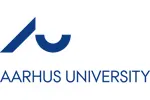

| The award | How you will study | Study duration | Course start | Domestic course fees | International course fees |
|---|---|---|---|---|---|
| MSc | Full-time | 4 semester | September, February | 0 | EUR 0 per year |
The MSc in Geophysics at Aarhus University provides a compelling learning experience, integrating skills in physics and mathematics with proper geoscience. Students get to choose their own specific area of focus while exploring a variety of fields at a range of scales, from past and present climate and shallow quaternary structures and materials, through the development of groundwater aquifers and sedimentary basins, to the structure and dynamics of the lithosphere and the Earth's mantle. Numerical modelling is generally used.
HIGH-CALIBRE RESEARCH
Teaching on the programme is integrated with research at the highest international level. The Department of Geoscience is renowned for its research in hydrogeophysics (airborne and surface electromagnetic methods) for use in hydrogeology and mineral exploration. Further specialities are reflection seismic acquisition (on board the research vessel Aurora), processing, and interpretation, as used in subsurface mapping of hydrocarbon and geothermal reservoirs; seismology and potential fields; and numerical modelling of surface and mantle processes.
The thesis, which is heavily weighted, is a chance for students to tailor their degree to their own personal and career interests while benefiting from close collaboration with fellow students and faculty members.
STUDENT LIFE
The Department of Geoscience is a small community of about two hundred students brought together by shared research, team field trips, and common interests.
Classes are held in modern facilities with well-established labs. You will have access to cosy study areas, quiet reading rooms, wi-fi, computers and, of course, a classic Danish pop-up Friday bar. As a Geoscience Master's student, you will also have access to a communal office where you can sit and study, or just hang out with other students.
CAREERS
Geophysics graduates have found jobs across a wide range of fields, including groundwater management, geophysical exploration for water and minerals in engineering companies and in the energy sector (including oil and gas), and for geothermal energy and CO2 deposits. They also frequently move into higher education and government research.
SPECIALISATIONS IN MSC IN GEOPHYSICS
Modules in each specialisation are either 5 or 10 ECTS. A full year of study is 60 ECTS.
All EU/EEA/Swiss citizens are exempt from payment of tuition fees.
In general, admission to a Master’s degree programme requires successful completion of a relevant and recognised university degree equivalent to a Danish Bachelor’s degree in level and length (180 ECTS). All applications must also fulfil the English language requirements.
Find more information about the admission requirements, application procedure and deadlines at Aarhus University.
In addition, you must meet the specific requirements for the Geophysics programme, which can be found on the Geophysics study programme page.
Below are some suggested courses at other providers that you may also be interested in:
Molecular Simulations of Weak Polyelectrolytes in Semidilute Regime PhD
Faculty of Science, Charles University
Find out moreIf you do not meet the entry requirements for this course then consider one of these postgraduate preparation courses from another institution:
Graduate Diploma of Engineering (Industrial Automation)
Engineering Institute of Technology
Find out moreThere are 56 other courses listed from Aarhus University. A selection of these are displayed below:
Find out more about studying in Denmark